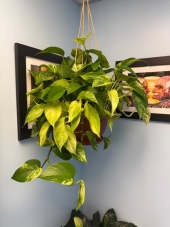


Kim Wills wrote:
Matthew Nistico wrote:
Inge Leonora-den Ouden wrote:Added note: for gardening work I like 'coveralls', the kind of suit that covers all my other clothes. It has several advantages (keeps clothes clean, can be worn over as much or as little clothes as needed in every season).
I was surprised to read a couple women in this thread decrying that their coveralls don't fit them well. A lot of women wear coveralls; there must be companies selling them in women's sizes, no?
Maybe it's a matter of body shapes, ie: curves? I'm a "pear shape" which is a nice phrase that means big hips & rear-end. In order to fit my hips without being too tight, I'd need a large size, so for example if I bought something called XL then the hips might fit but the waist and top might be too large & floppy. And/or they might be too long.
Then there's the issue of any jumpsuit-type thing and peeing. You have to pull the whole thing down, which is awkward and annoying. Footsie pajamas seem like fun but not in the middle of the night when it's cold and you have to be almost naked just to pee.

Matt McSpadden wrote:Would you rather only be able to plant things in straight lines or never be able to plant things in straight lines?
If you like the "Would You Rather" game, check out this index of other questions. https://permies.com/t/238000/Permaculture-Edition

Matthew Nistico wrote:
Inge Leonora-den Ouden wrote:Added note: for gardening work I like 'coveralls', the kind of suit that covers all my other clothes. It has several advantages (keeps clothes clean, can be worn over as much or as little clothes as needed in every season).
I was surprised to read a couple women in this thread decrying that their coveralls don't fit them well. A lot of women wear coveralls; there must be companies selling them in women's sizes, no?
Nancy Reading wrote:
Samantha Lewis wrote:Now I am spinning the yarn from my own sheep too. I think this a great way to create long lasting garments.
I make cotton and linen stuff too. It does not have to be all wool. Everything seems to last longer if it is homemade
Do you think the fibres are better when handspun (longer or otherwise superior) or that the machine made yarn is damaged in some way? Handspun and handmade is obviously more precious, but I'd have thought that inconsistencies would be detremental to longevity not ending up superior.



